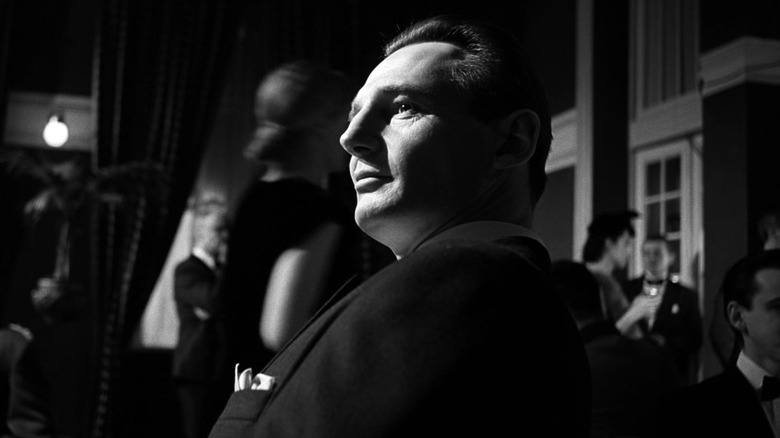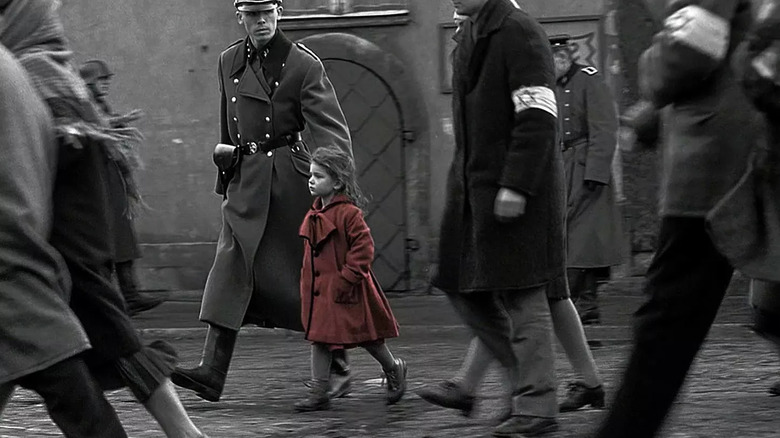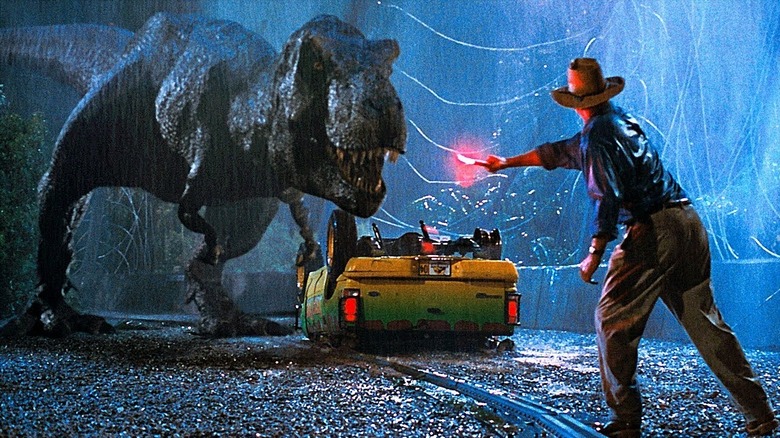Steven Spielberg Used Two Of His Biggest Movies To Graduate College
The generation of young American filmmakers who broke out in the late 1960s and throughout the 1970s are typically referred to, colloquially, as the Film School Generation. This was a group of mavericks and new creatives that included such directors as Martin Scorsese, Brian De Palma, Francis Ford Coppola, and George Lucas. They were the first generation of filmmakers who entered into their craft after a great deal of formal training and study. The above filmmakers were also among the first successful directors to emerge from an atmosphere of cinematic scholastic study.
Steven Spielberg is often listed alongside the biggies mentioned above, even though he wasn't a product of film school. Rather, Spielberg was obsessed with movies since he was a young child (an obsession he detailed in the semi-autobiographical film "The Fabelmans") and only ever wanted to make movies. At the same time, he knew that academic study was important, so he attended California State University at Long Beach. (He even joined a fraternity.) Partway into his first year of college, however, Spielberg made "Amblin'," one of his more famous short films. Universal was so impressed by the results that it signed Spielberg to a seven-picture deal right away. College was no longer necessary for the young director, so he dropped out after his first year was up.
Education is important, kids. But we can all understand why Spielberg left college after being granted a seven-picture deal when he was only 21 years old. His third feature, "Jaws," came out in 1975 and went on to gross nearly half a billion dollars at the box office on a $9 million budget. Spielberg has been Hollywood's central golden boy ever since.
Years later, though, Spielberg felt bad about dropping out of CSU Long Beach. As such, he decided to do the responsible thing and return. Of course, it was easy for him to graduate from the school's Bachelor program — seeing as he was allowed to submit the Best Picture Oscar-winning "Schindler's List" as his final project.
Steven Spielberg presented Schindler's List as his final project
In 2001, having previously directed "Saving Private Ryan," "Jurassic Park," three "Indiana Jones" movies, and "The Color Purple" (among other films), Spielberg decided that it was high time he should finally earn a B.A. As such, he went back to CSU Long Beach, reapplied, and asked to take its Film and Electronic Media course. Never mind that he could easily have taught such a course by then. Indeed, he had already been granted honorary doctorates from Yale University. Per a report by the Los Angeles Times, Spielberg studied everything any other college student did and even had to write a term paper for Natural Science 492. In fact, his professor, Donald J. Riesh, was impressed with his work. Spielberg also took a few other general education classes besides.
Sadly, Spielberg didn't actually enter any classrooms, instead using an independent study program at home. This is understandable, given that Spielberg was likely quite busy. He also protected his celebrity and privacy by enrolling under a pseudonym. He did, however, buy a cap and gown and attend the graduation ceremony. Spielberg was quoted as saying:
"I wanted to accomplish this for many years as a thank-you to my parents for giving me the opportunity for an education and a career. [...] And as a personal note for my own family — and young people everywhere — about the importance of achieving their college education goals."
The article did mention that Spielberg had to complete Film and Electronic Arts 309, the advanced film studies course, by submitting a completed feature. Spielberg submitted "Schindler's List," which naturally earned him a passing grade.
As it so happens, other films in Spielberg's filmography were also used to help him through his college crash course. "Jurassic Park," specifically, was counted as a science credit.
Spielberg used Jurassic Park as his science credit
In a 2016 retrospective, Time Magazine published a graduation speech Spielberg gave to Harvard. It pointed out that the filmmaker was allowed to use some of his hit movies as proof of his knowledge of other topics. It seems that CSU Long Beach even gave Spielberg a paleontology credit for making "Jurassic Park." This would make a real paleontologist snicker, of course, as a lot of the actual science in "Jurassic Park" is the stuff of sci-fi monster cinema. For example, near the very start of the film, a group of paleontologists are shown uncovering a perfect, whole dinosaur skeleton. In reality, they typically only recover little fossil pieces that make up maybe 10 percent of an animal.
Spielberg did, however, closely study the biology of ostriches and elephants when he designed his movie dinosaurs and got to know the way animals behave, so he did, at the very least, do some legitimate biological research. The Los Angeles Times article also pointed out that Spielberg was able to use his study of the cosmos while making 1982's "E.T. the Extra-Terrestrial" as proof that he had looked into astronomy. Similarly, his study of sharks while directing "Jaws" counted as a unit in marine biology.
He ended his speech at Harvard as follows:
"But, if you remember nothing else from today, I hope you remember this moment of human connection. And I hope you all had a lot of that over the past four years. Because today you start down the path of becoming the generation on which the next generation stands. And I've imagined many possible futures in my films, but you will determine the actual future. And I hope that it's filled with justice and peace."
If that's not inspiring, I couldn't say what is.


